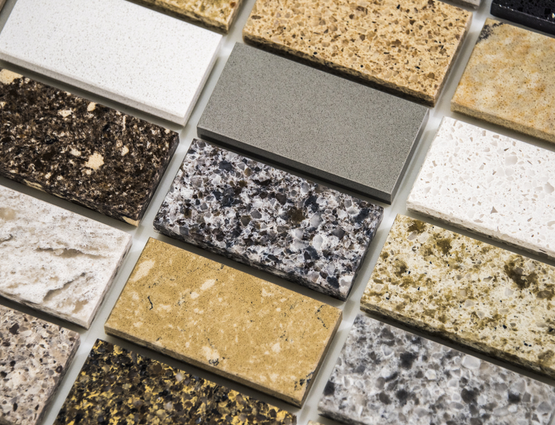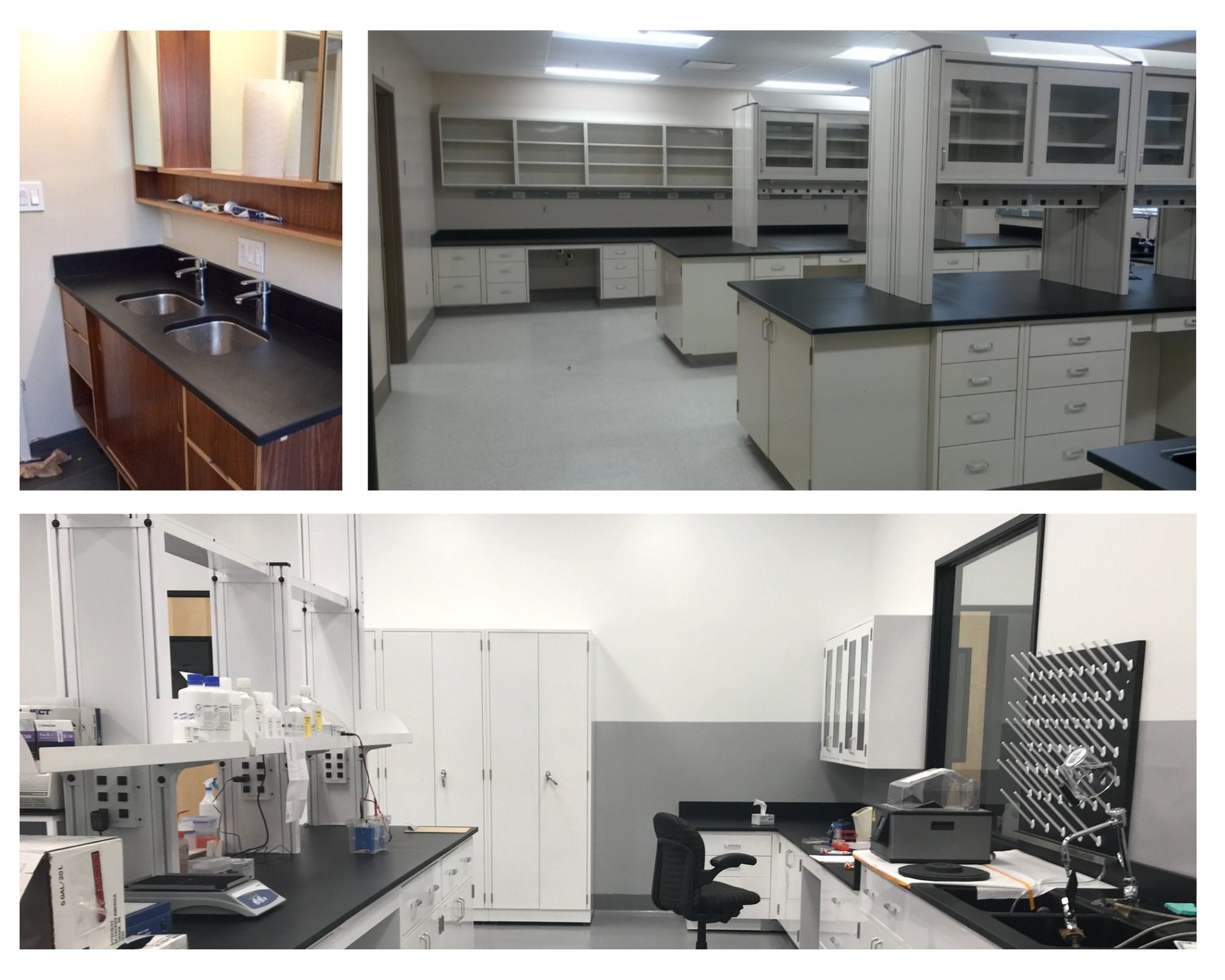They keep telling us options are the best thing that ever happened to us, but – truthfully – with so many options out there it’s easy to get distracted and end up choosing the version that doesn’t work to your benefit as much. Even so, the good news is that you are not alone when it comes to having to choose the right countertop (and getting lost in the overwhelming number of options.) From durability to style to color to cost, you have to consider plenty of factors before you say yes a to a single countertop.
To help you out, we’ve put together a list of pros and cons together of currently the most popular counter materials:
Laminate
Laminate is usually the first choice of many buyers: it offers a wide variety of styles and colors, it’s got a pretty low price point, and it is durable enough to withstand everyday use. Unfortunately, the laminate is not heat resistant, and it’s not as durable as, say, natural stone. Also, it can be difficult to clean.
Engineered Stone (Quartz)
Quartz is also a pretty standard choice as it is one of the most popular materials on the market at this point. It is due to the features like being easy to customize, requiring low maintenance and the fact its heat & scratch proof. Engineered stone doesn’t need to be sealed, but it may show visible seams where pieces meet which decreases its aesthetical value. However, this can be corrected with the use of continuous pieces, so the whole thing isn’t that bad.
Marble
For everyone who wants to add some luxury into their space, marble is the material. It looks incredibly rich and is available in a wide variety of colors which works excellent for various interior ambiances. The downside of this lux-looking material is that it stains and scratches easily.
Granite
For settings that work with heat and use chemicals, granite may be the best material to choose for a countertop. The reason? It’s heat, water, and stain resistant when sealed and it is very easy for maintenance. The bad side of granite countertops is that they can chip or crack easily, i.e., if the material’s too thin. It’s also cumbersome as it needs adequate support, and final colors can vary from samples.
Concrete
Stain and heat resistant, concrete countertops are also great for potentially demanding settings. Concrete is a very tough material, but it’s also challenging to install.
Stainless Steel
Stainless steel is heat-resistant, durable, and has a pretty high-end look, especially if you want it for a commercial kitchen look or a similar setting. Unfortunately, it is not that easy to maintain: fingerprints show up very quickly as do spills and crumbs. It also dents and scratches easily.
Countertop maintenance is one of the critical elements you should consider before choosing a countertop for your space. Be honest about the amount of time and energy you are willing to commit to its maintenance and then select. Also, go through the pros and cons we’ve listed to find your best option. Partner up with professionals in the field for the best advice and proper installment.
Frequently Asked Questions
What are the best countertops?
The best countertops depend on individual preferences and needs. Some popular choices include granite, quartz, and solid surface countertops. These materials offer durability, aesthetics, and various customization options.
How do I choose the right material for my countertop?
When choosing a countertop material, consider factors such as budget, desired aesthetics, durability, maintenance requirements, and the intended use of the countertop. It’s important to research and compare different materials to find the one that best fits your specific needs.
What is the best heat-resistant countertop material?
Granite and quartz are known for their heat resistance, making them popular choices for kitchens. These materials can withstand high temperatures without being damaged or discolored. However, it’s still advisable to use trivets or hot pads to protect the countertop surface from direct heat exposure. You may check out our article on comparison of countertop types for more info.
What is the best countertop for a traditional kitchen?
Traditional kitchens often feature natural stone countertops such as granite or marble. These materials offer classic and timeless aesthetics that complement the traditional style. Additionally, wood countertops can also enhance the warm and inviting atmosphere of a traditional kitchen.


